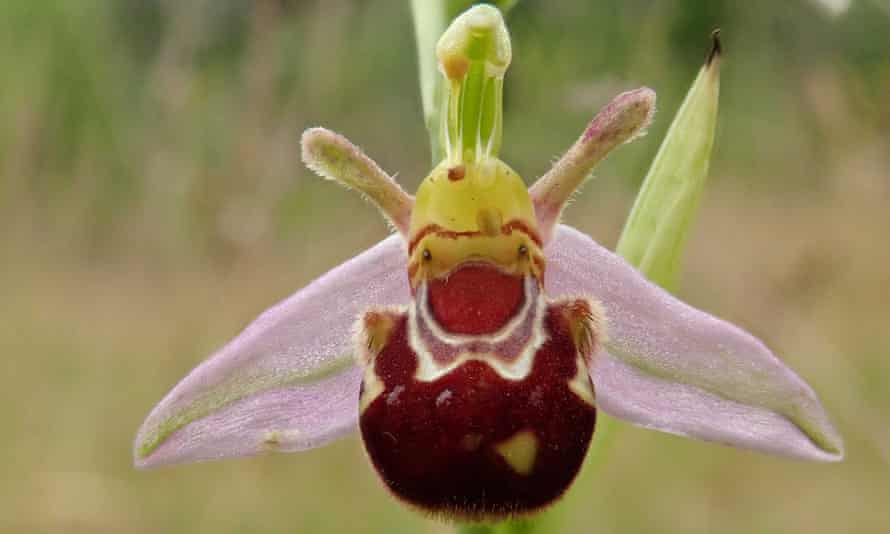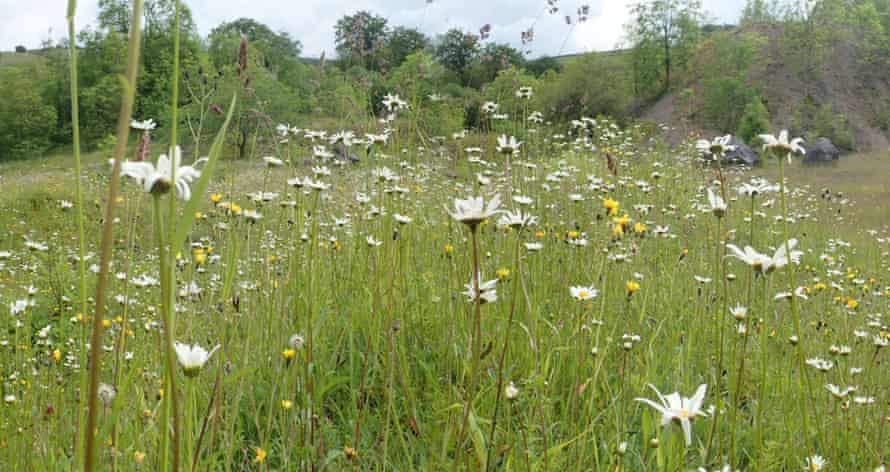Country diary: what the quarrymen left behind
Millers Dale, Derbyshire: The legacy of all the hobnailed boots and horse-drawn carts are today’s redstarts, woodpeckers, knapweed and orchids

In its heyday, the now abandoned railway line – which is a key source of access to this part of the Wye Valley – was a cause of despair for John Ruskin. In 1871, he lamented how a dale as “divine as the vale of Tempe” had been ruined so that “every fool in Buxton can be at Bakewell” in 30 minutes. Five years after he wrote these words, the philistines went a step further and quarried out a sheer face from the gorge to feed lime kilns just west of Millers Dale station. Old photographs reveal the developments to have created a smoke-filled landscape largely stripped of trees and reduced to bare rock.
You can imagine the scene at the quarry face: the labourers armed with crowbars or laying explosive charges and shovelling the blasted stone on to horse-drawn carts. Their hobnailed boots must have crunched the limestone shards to fragments, because today you can still find the gravelled, soil-free quarry floor as well as the big stone blocks that look as clean as the day they were levered from the rock face.

What remains is not some raw, rocky wound but a Derbyshire Wildlife Trust reserve redolent of the vale of Tempe, just as Ruskin invoked – because it’s remarkable what prolonged abandonment and the healing powers of nature can do for industrial dereliction.
The thinnest of soils creates a perfect bed for a suite of limestone-loving flowers: knapweed, rockrose, oxeye daisies, kidney vetch, bird’s-foot trefoil, thyme, marjoram, harebells. And the circular face of the quarry serves like a resonating chamber to amplify the sounds of garden warblers, redstarts, blackbirds, whitethroats and green woodpeckers.
Most wonderful, however, in which the much-mistaken Ruskin might have taken deepest ironic delight, are the orchids. They come in a revolving summer sequence: early purple, spotted, pyramidal and fragrant. Yet my favourites, to which I make annual pilgrimage, are the bee orchids that flower for the next few days. Anemones may have sprouted where the tears of Aphrodite fell and roses bloomed from drops of Adonis’s blood, but I like to think of these otherworldly orchids arising from the sweat wiped off a Derbyshire quarryman’s brow.